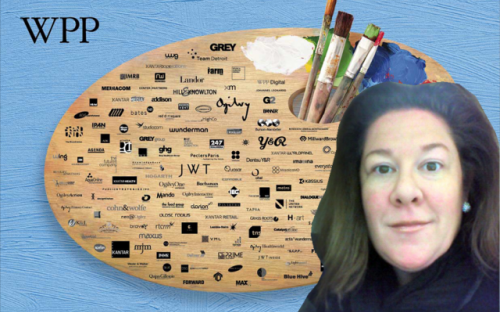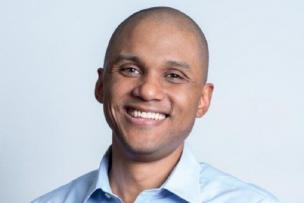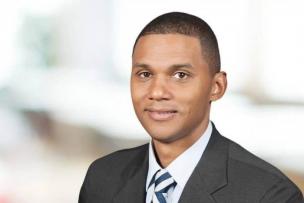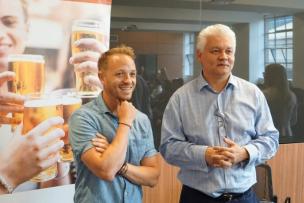We recently interviewed Trish Shortell the Senior Vice President of Executive Recruitment and Talent Management for WPP in North America. Over the eight years that she's held this position she's worked with colleagues all over the world to achieve WPP's global recruitment objectives.
Just in case some of you didn't know, WPP is the company that owns some of the world's most famous communications and marketing agencies. Some of their most notable companies include JWT, Ogilvy Group, Grey Group, Y&R and Kantar Group.
The first thing we addressed was who decided MBA candidates needed their own program? The answer happens to be Sir Martin Sorrell. “Our CEO had a vision of bringing MBA graduates into the marketing services businesses and envisioned a three-year diverse experience. MBAs have a broad but complex skill set that fits in well with our industry.”
Since its inception, the WPP MBA Fellowship Program has gathered tremendous support from the WPP's numerous operating companies. Trish believes it is a “forward thinking program and probably the most outstanding program of its kind.” She was quick to note that there are other WPP Fellowship Programs, for example the First Degree Program that serves to bring younger talent into the industry.
Trish elaborated by saying, “MBA students have usually followed a trajectory of financial services and consulting, however a lot of their skills are perfectly matched for our industry.”
The WPP MBA Fellow spends each of his/her three years in a different operating company – across different marketing services disciplines; “the exposure allows the MBA Fellow to gain a holistic view of our client’s needs. Ultimately the Program prepares the MBA Fellows for meaningful leadership roles within our businesses and will enable them to best serve our clients.”
WPP personalizes the program to suit the goals and objectives of the WPP MBA Fellow candidate. This diversity of experiences aims to give an MBA graduate the opportunity to use their broad skills set as thoroughly as possible.
The selection process for the few spots available consists of completing the written application which includes several essay questions. The applications are then read by at least 4 different senior executives and graded solely on the responses of those essays. The readers often look for depth, clarity and ability to convey a point of view. Trish said “creativity and humour certainly lends itself to memorable applications."
Once the applications have been read and scored, the top 20 applicants are invited to interview for the five available spots created each year. The interview process consists of a day-long event, where candidates meet with several senior executives from various disciplines across WPP. Interviewers from WPP operating companies include Global CEOS, Creative Officers, PR Executives, Strategic Insights and Corporate Development leaders.
The application process for the MBA Fellowship is incredibly competitive: “We have hundreds of applications for only five spots per year. This year we had applications from 97 universities around the world.”
Fellows are offered career counselling and their program is customised accordingly; there is no ‘one-size-fits-all’ Fellowship. “In the beginning we ask candidates to tell us where they see themselves in ten years time. We require our MBA Fellows to create a career vision for themselves. Then we help them to set up a structured program that ultimately leads to their goals.” These career goals are considered very carefully when decisions are made about where candidates should be placed for their rotations.
When we asked Trish to sum up the application process in one word, 'rigorous' was the answer she gave. The process typically starts around August every year and ends in November with final decisions announced in December. Late applications are not considered.
Also the MBA Fellowship is only open to people in their final year of graduate school and does not apply to MBAs who have already graduated.
The interview process itself is one of the toughest: “since we're looking for the best it's only fitting that they are interviewed by the best.” David Sable, Global CEO, for Y&R Advertising was described as a champion of the program. He dedicates an entire day of his time every year just to interview candidates for the MBA Fellowship. The interviewers are leaders in their respective fields. In previous years, interviewers have included: Eric Salama, Global CEO Kantar, Allen Adamson, Managing Director, New York, Landor Associates; and Steve Simpson, Chief Creative Officer, Ogilvy & Mather.
When talking about the other benefits of the Fellowship a point was made of how, “candidates can make their placements almost anywhere in the world depending on their aims. This means that in their first year they could be in London, then in the second year they could be in New York and in the final year they could even be in Shanghai.” It really depends on the long-term goals of the MBA Fellow and what experiences suits their needs.
When discussing the kind of people WPP looks for we were told that, “there is a misconception that one needs to write copy or art direct or they are not suited for our businesses”. WPP is fortunate to have a wide array of businesses that serve many skills and talents. Most people would not think of econometricians, mathematicians and PhDs as candidates for marketing services, but they are found in many aspects of the business. According to Trish, “The one common factor must be that people have a commitment to serving clients and a passion for creative work.”
Finally Trish gave a little advice for people looking to break into the industry. She said that the industry isn't one that discriminates against background. If someone can demonstrate creative or analytical talent in their work then they'll get noticed. She gave us an example of an MBA Fellowship candidate who got a perfect score on his essay, even though his background was in executive search. While he didn’t score high enough on other parts of the application to make the program, “we liked him so much that we introduced him to the senior-most creative of one of our operating companies. Talent is all you need, it's our common ground.”
RECAPTHA :
05
36
ed
9a







